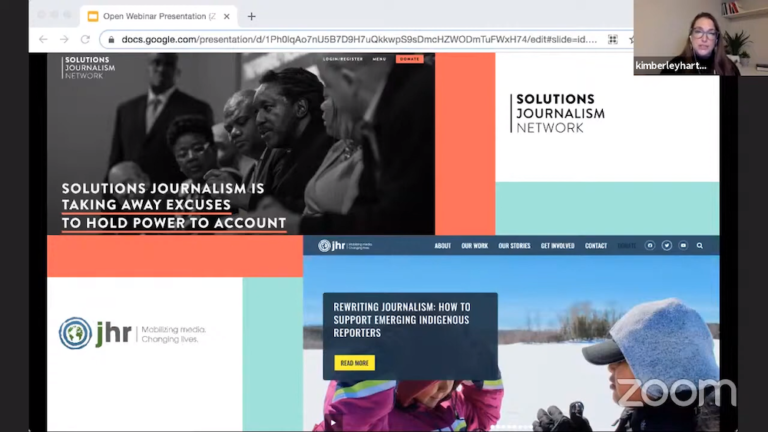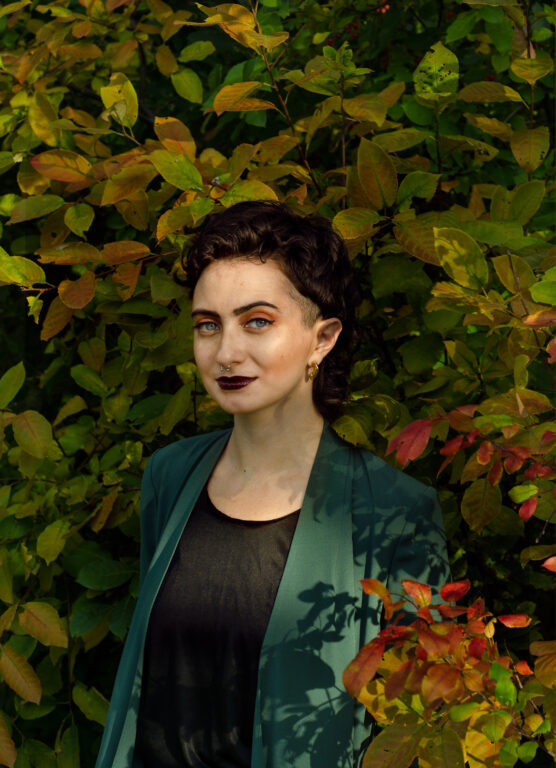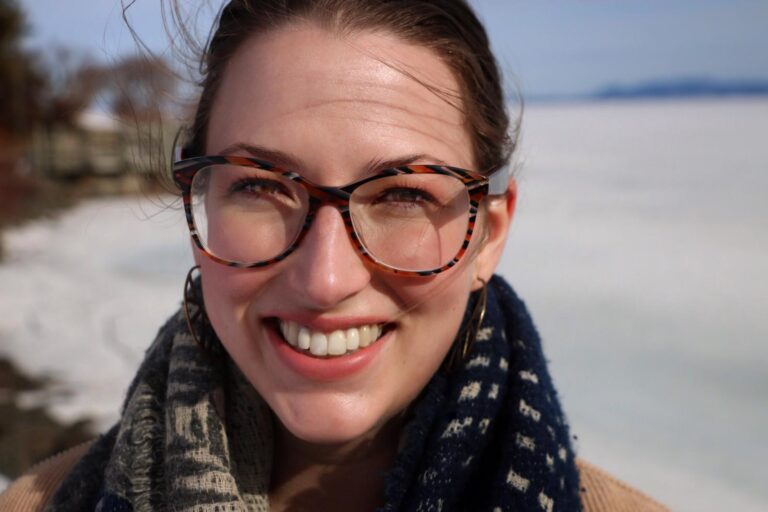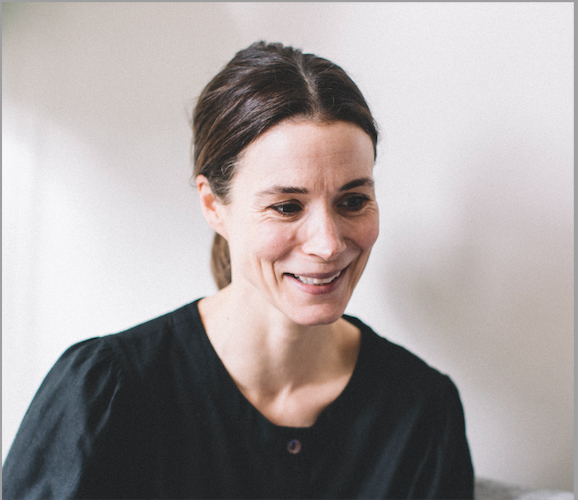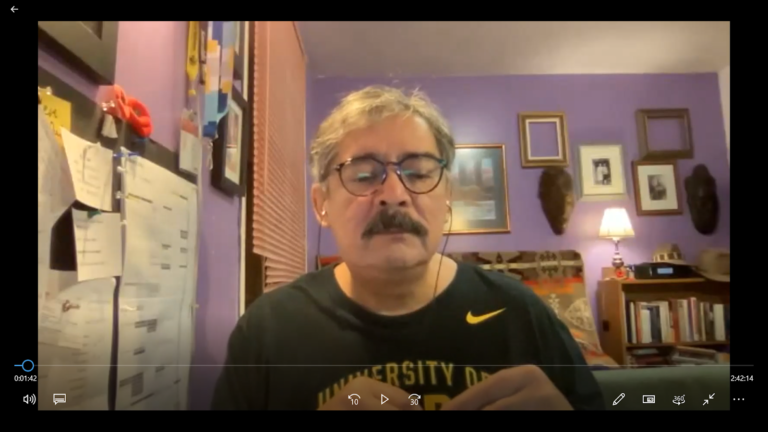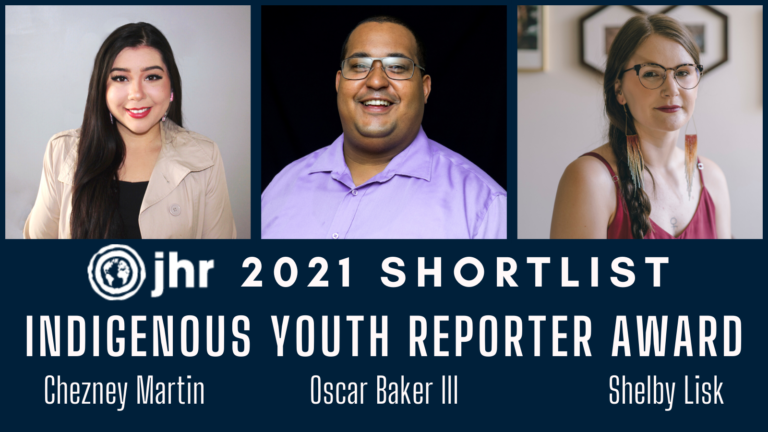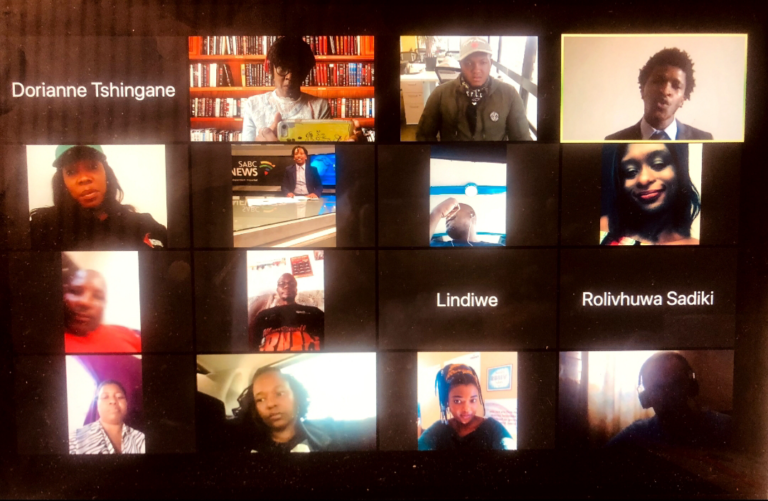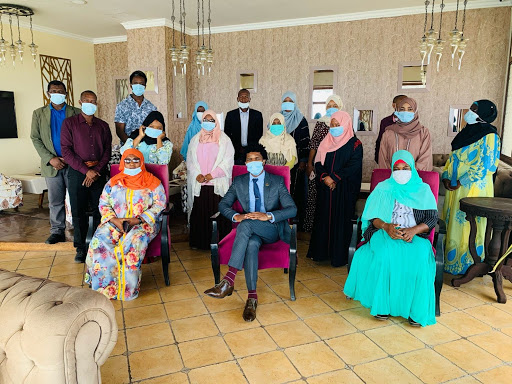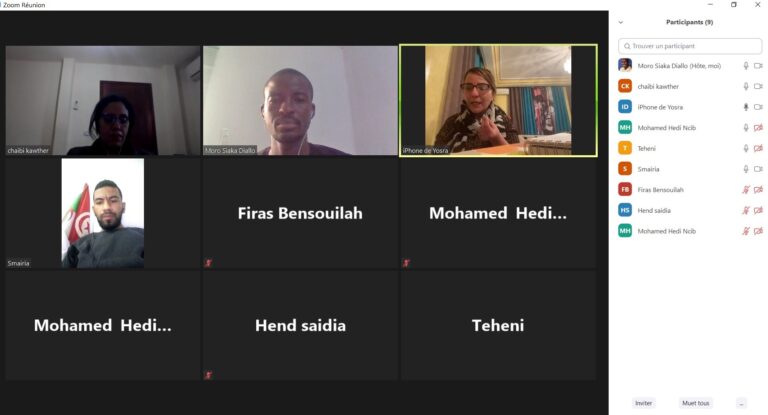This week’s highlights
- Strengthening Media in Canada through a Rights-Based Solutions Approach
- Introducing Ziya Jones, Kimberley Hartwig and Jordan MacInnis: JHR and Solutions Journalism staff
- Meet Dan David: APTN Trainer with JHR’s project Canada World: Voice for Women and Girls
- 2021 Indigenous Youth Reporter Award Shortlist Announced
- Training for ‘Mobilizing Media Fighting Covid19’ in Tanzania, South Africa and Tunisia
- Apply Now to the Media Girlfriends Fellowships
Strengthening Media in Canada through a Rights-Based Solutions Approach
Screenshot from Solutions Journalism Webinar.
JHR is delighted to share news of its first fully national Canadian program, Strengthening Media in Canada through a Rights-Based Solutions Approach, in partnership with the Solutions Journalism Network. Funded by the McConnell Foundation, this program provides in-depth solutions and human rights journalism training to Canadian journalists for the first time.
More than 250 journalists have participated in the online training and are now covering issues and events across the country with a solutions lens. At Timmins Today, Dariya Baiguzhiyeva explored how the residents of Moose Factory are preserving a unique Cree dialect. Matt Simmons wrote about an Indigenous Coast Guard program in B.C. for The Narwhal. The training urges journalists to “look at what other communities are doing to address issues and to draw comparisons,” said one journalist who participated. “Reporting on solutions should be just as rigorous as reporting on problems.”
Introducing the driving forces behind the SJN program
Ziya Jones is a regional trainer in JHR’s Eastern region and the senior editor, health at Xtra Magazine. Their writing has appeared in Hazlitt, Reader’s Digest, TVO and Eater.
“I’ve spent most of my career covering health, social equity and LGBTQ+ rights. Solutions Journalism and human rights reporting are powerful tools for reporters and editors covering these topics and can be harnessed to tell nuanced stories about the powerful work and resistance taking place in communities that mainstream media typically neglects to cover.”
Kimberley Hartwig is a regional trainer in JHR’s Western region. She previously worked in JHR’s Indigenous Reporters Program as a community journalism trainer in Nibinamik First Nation.
“I first learned about solutions journalism when I was working for a media organization in the Czech Republic and was immediately drawn to the practice. With solutions journalism and human rights reporting, journalists are able to cover the part of a story we often overlook— how people are responding to problems.”
Jordan MacInnis, (Regional Programs and Operations Manager), is the driving force behind JHR’s Solutions Journalism and Human Rights Reporting project. She has a background in journalism and media production and manages two Canadian programs at JHR.
“Solutions journalism helps to put solutions at the centre of any discussion about human rights, » says MacInnis. « More, different and better coverage of the ways in which communities are working to preserve those rights can bring immeasurable returns to newsrooms and their audiences.”
Meet Dan David: APTN Trainer with JHR’s project Canada World: Voice for Women and Girls
Dan David conducting Zoom training on “Telling the whole Story” for Kenyan journalists
Dan David is an award-winning journalist and the first head of news at Aboriginal Peoples’ Television Network. Since January 2021, he has been working with JHR as an expert trainer to support the capacity-building of local journalists in Kenya. Dan brings a wealth of knowledge and a unique perspective to the role. Next week will mark the end of Dan’s assignment with JHR and we would like to profile him as a way to thank him for his notable contributions to the Canada World: Voice for Women and Girls project. (His lifetime of dedicated service to journalism also was just recognized with the Canadian Journalism Foundation’s Lifetime Achievement Award for 2021.)
Click here to read more in a short interview with Dan David.
2021 Indigenous Youth Reporter Award Shortlist Announced
Journalists for Human Rights (JHR) is pleased to announce the shortlist for the 2nd Annual Award for Outstanding Work by an Indigenous Youth Reporter.
The 2021 shortlist is:
Oscar Baker III: A story of resilience: Decision to take son off of life support still haunts Membertou First Nation father
Shelby Lisk: For our children: How families are passing down Indigenous languages
Chezney Martin: How can you reconcile on stolen land
Chezney Martin: How can you reconcile on stolen land
The award seeks to recognize a piece of outstanding journalism created by a First Nations, Métis or Inuit journalist or team of journalists between the ages of 15 and 29 years old that was published or broadcast in any format and any medium in Canada during the 2020 calendar year.
The award is supported by the RBC Foundation as part of RBC Future Launch, the bank’s 10-year, $500-million commitment to preparing Canadian youth for the jobs of tomorrow.
The shortlist was chosen by a panel of three judges: Tanya Talaga, Anishinaabe journalist and author; Karyn Pugliese, Algonquian-Italian journalism professor and broadcaster; and Ryan McMahon, Anishinaabe writer, podcaster and comedian.
“It took us a long time to deliberate between the top three stories, all were very strong. The quality of the writing, and the depth of knowledge of the writers was impressive. Editors should keep an eye on all three writers, their talent will take them far in the industry.” – Karyn Pugliese, panelist
About the shortlisted journalists:
Oscar Baker III is Black and Mi’kmaw from Elsipogtog First Nation. He is currently working as a freelance journalist and homemaker from his home in Indian Island First Nation.
Shelby Lisk is a Kanyen’kehá:ka photographer, filmmaker, and journalist with roots in Kenhtè:ke (Tyendinaga Mohawk Territory). She is currently TVO’s Indigenous Hub staff writer.
Chezney Martin is Haudenosaunee from the Turtle Clan of the Seneca Nation living on the Six
Chezney Martin is Haudenosaunee from the Turtle Clan of the Seneca Nation living on the Six
Nations of the Grand River Territory Reserve. She is a freelance journalist and Cultural Interpreter at the Woodland Cultural Centre.
Training on Human Rights and the Impact of Covid-19
Zoom training in South Africa
With the pandemic in full force this past year, JHR started the ‘Mobilizing Media Fighting Covid19’ project. The project is aimed at providing accurate information on public health, countering misinformation on Covid19 and is financially supported by Global Affairs Canada (GAC). The project is active in 12 countries across Africa and the Middle East. Journalists are being trained and will produce stories about the impact of the pandemic on vulnerable groups, especially women and girls.
Here is a view on some of the online and in person training that has taken place so far in Tanzania, South Africa, and Tunisia. With contributions from the Regional project leaders Siyabulela Mandela(South Africa, Tanzania and Uganda) andMoro Siaka Diallo (Mali and Tunisia). Read the full blog here.
Tanzania
Training in Tanzania. Photo credit: JHR.
Training took place in Dar es Salaam and Zanzibar, and of the 25 participants, 17 were female journalists. The night before the training started, it was officially announced that the country’s President John Magufuli had died and Tanzania’s first female president, Samia Suluhu Hasan, was sworn in.The participants couldn’t help but include the transition in discussions, and specifically what it would mean in terms of the country’s change of policy towards COVID-19, and gender and equality issues in the country.
South Africa
Zoom training in South Africa
The level of engagement from the participants was the biggest highlight of the training sessions. Many of the 26 participants had a long history of reporting on various social justice issues, and had very compelling and timely story ideas which cover a range of topics from access to social services for African migrants and asylum seekers, access to government mental health services during lockdown, including the equitable distribution of vaccine and more. It was very exciting to hear the passion from the journalists about Human Rights stories and how journalists can play a role in supporting change.
Tunisia
Zoom training in Tunisia.
With JHR, journalists in Tunisia were able to join training on misinformation and gender equality within the context of Covid19.
« From this training, I learned a lot of new things; new ways of working with information and making it reliable ” said Ms. Yosra MANAI, journalist at Radio 6 based in Tunis. With Covid-19 in Tunisia, the media sector is struggling to cope with disinformation which is overflowing and the lack of quality in stories related to women and girls’ rights. According to KAOUTHER Chaibi, journalist for Kashfmedia.com, « this training had met my expectations because it enabled me to improve my knowledge on human rights journalism and to be ready to fight disinformation related to Covid-19 ». For Salma FESSI, journalist at Radio des Mines in Gafsa, « I am ready to better manage the current situation “.
Français
Avec JHR, des journalistes en Tunisie ont appris les techniques de vérification de la désinformation et le reportage sensible au genre en contexte de Covid-19
Avec la Covid-19 en Tunisie, le secteur de l’information fait difficilement face à la désinformation qui est très croissante et à une qualité insuffisante des reportages touchant les problématiques des femmes et filles et de leurs droits. Selon KAOUTHER Chaibi, journaliste au site d’information Kashfmedia.com « cette formation a répondu à mes attentes car elle m’a permis d’améliorer mes connaissances sur le journalisme des droits de l’homme et d’être prête à lutter contre la désinformation liée à la Covid-19 ». Pour Salma FESSI, journaliste à Radio des Mines à Gafsa, « je suis prête à mieux gérer la situation actuelle ».
Read the full blog here.
Apply Now to the Media Girlfriends Fellowships
Media Girlfriends is a podcast company, network & student scholarship. Media Girlfriends support women & non-binary journalists. They work to promote more perspectives in Canadian media, particularly those by Black, Indigenous and other people of colour. Media Girlfriends started as a podcast by Nana aba Duncan, currently a William Southam Journalism Fellow (see above) and formerly JHR’s country director in Ghana !
Journalism students: Apply for a new $10,000 CAD Media Girlfriends scholarship for Black high school students pursuing journalism at a post-secondary institution in Canada, and/or one of two $10,000 CAD Media Girlfriends scholarships for women/trans/non-binary students pursuing journalism, communications, media or tech. Deadline is April 30, 2021. More information, including how to apply, is at https://www.mediagirlfriends.
********************************
Land Acknowledgement
We wish to acknowledge the land on which the Journalists for Human Rights’ head office operates and recognize the longstanding relationships Indigenous nations have with these territories. For thousands of years it has been the traditional land of the Huron-Wendat, the Seneca, and most recently, the Mississaugas of the Credit River. Tkaronto (Toronto) is in the Dish with One Spoon Territory and is home to Indigenous peoples from many nations across Turtle Island who continue to care for this land today.
To read more on JHR’s land acknowledgement, click here.



